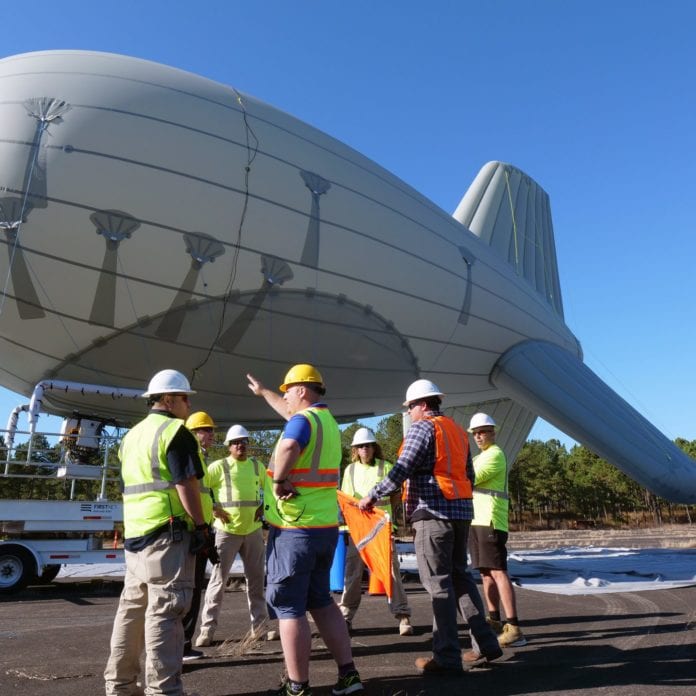AT&T-FirstNet has struck a new contract to provide service to 15 U.S. Air Force bases for a term of 21 years, which is the remainder of AT&T’s public-private partnership contract with the First Responders Network Authority.
The Air Force is adopting FirstNet at those 15 bases initially, while it considers expanding FirstNet accessibility to other locations, AT&T said in a release. The contract, which is with the Air Force Civil Engineer Center (AFCEC), covers service including priority communications for the locations’ public safety personnel and, for first responders, preemption. The Air Force will also have access to FirstNet’s fleet of deployables, including blimps (pictured above) that can provide temporary or emergency coverage for an extended period of time.
“We aim to be the network provider of choice as the Air Force moves more deliberately toward consuming advanced communications capabilities,” said Lance Spencer, client executive vice president of defense for AT&T Public Sector and FirstNet.
The U.S. Air Force and the Department of Defense have steadily been expanding and upgrading communications capabilities at bases around the country and exploring the use of 5G as well. AT&T has previous contracts to provide 5G and commercial networking-as-a-service to three U.S. Air Force bases: Buckley Air Force Base in Colorado; Joint Base Elmendorf-Richardson in Alaska; and Offutt Air Force Base in Nebraska. Verizon’s public sector unit has won work with the Air Force as well, including the delivery of its 5G millimeter wave service to seven Air Force Reserve Command (AFRC) installations located in California, Florida, Massachusetts, New York, Ohio, Pennsylvania and Texas.
In addition, in March of this year, the Air Force’s Space Command issued a Request for Information (RFI) detailing its interest in using 5G for data transportation for ground- and space-based communications.
As of the second quarter of this year, AT&T reported that more than 17,000 agencies and organizations are using the FirstNet network, and that it supports more than 2.5 million connections.

